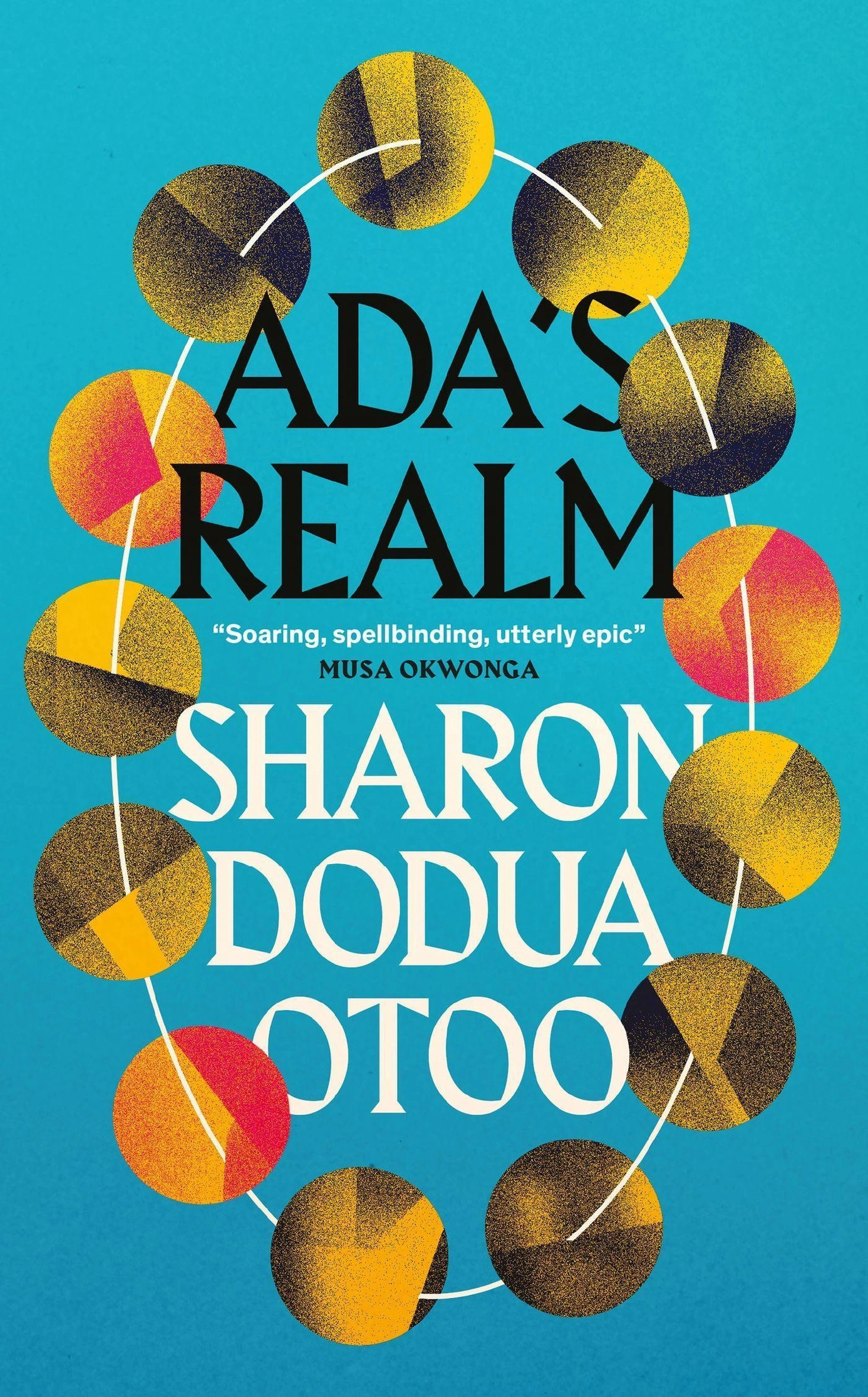
Ada’s Realm
Ada’s Realm is ambitious and epic in scope, gripping and intelligent in execution, and somehow both unforgiving and funny. It will let you meet Ada in her different iterations through the ages, as well as God in a number of irreverent and charismatic guises, whose mystic wisdoms are delivered in a Berliner dialect.
The first encounter with Ada has her in Totope in West Africa (in today’s Ghana) in 1459, as Portuguese merchant-sailors arrive in search of loot to steal to make them rich men back in Europe. Here she is a woman already once displaced from her home village, who has just lost her infant child and is set for more tragedy at the hands of real historical figure of Portuguese colonial expansion , Gulherme Fernandes Zarco. The second time we meet her finds her in England, in Stratford-le-Bow, in 1848. She is a gifted mathematician fascinated by computation – the historical figure Ada Lovelace, who after having been initially written out of a history that would make technology a masculine domain, is now widely regarded as a foremother of programming. In the novel, she’s also married to one man and having an affair with another (no less a figure than Charles Dickens), both of them given to temper tantrums. The next life of Ada places her in Kohnstein bei Nordhausen, in 1945, in the concentration camp Dora. Her mother, a wayward woman by the standards of the Polish town where they live, gives her life trying to ensure the escape of her children, but Ada is captured and made into a sex slave at the camp. And in 2019, we find her pregnant and struggling to find a place of her own in the carnivorous (and mostly racist) rental market of Berlin.
In each of these loops, we find recurrences, echoes and reverberations. Readers are anchored to a chronology of sorts by the section headings that set happenings in a time and place, but the way time and experience move in the novel is not linear or chronologically causal. Sometimes, figures must go back to learn things they once already knew. The experience for the reader can be bewildering at first, but in a way that kept me interested, and looking for clues. Certain figures emerge as recurring in all these loops, in different figurations: the sister helper, the antagonist. And one object moves forever in the vicinity of Ada: the bracelet stolen from West Africa by colonists.
In this and other ways, Otoo is able to elegantly craft resonances between her various eras and settings, and political questions that are very much pertinent to our present moment. The bracelet lands in an exhibition in Berlin, on ostensibly gracious loan from the private collection of the white man who has ended up its legal possessor. It cannot be ‘gifted’ back to Ada, as her cool rejection of the offer signals, since it is not, nor was it ever, his to give. This had, to my eye, a clear relevance to debates about the repatriation of objects acquired through colonial violence, which are now still in the possession of European institutions. What struck me was the insistence on the right terms for this conversation: Ada will not grant the satisfaction of dubbing the return of what rightfully belonged to her ancestors a gift.
But that’s far and away not the only way in which Ada’s Realm makes its interventions into current political questions. There is the loathsome Boris Johnson and the tragic farce of Brexit; there is the racist undertow of Black Germans being asked where they’re from. And there is also, poignantly, the arbitrary accident of the passport – who possesses the right one and who doesn’t. Otoo draws a lovely line between the injustices of then and now, when she has Ada arriving at Heathrow in 2019:
“Passport control is an ingenious invention. I wonder how the story would have turned out if, upon the arrival of the São Cristóvão, the Toothless had unceremoniously decided to set up a similar operation on the beach of Totope. I imagine how one of the kotsa-chewing old ladies might have held out her shaky, wrinkled left hand to Captain Gomes, who would have been forced to set off on the laborious journey homeward due to his missing paperwork.”
Ada’s Realm
In this and many other ways, Otoo’s first full-length novel tackles injustices with an eye for complexity and irony. And it does so in some stylistically innovative ways – as the perspectives taken on by the narrating voice make evident (watch out here for, amongst other things, a broom and doorknocker). Having been a fan of Otoo’s earlier work, my expectations were high, but they have been outstripped by the book she has written.
(translated by Jon Cho Polizzi).
Order the book here and support us! The work behind poco.lit. is done by us – Anna und Lucy. If you’d like to order this book and want to support us at the same time, you can do so from here and we will get a small commission – but the price you pay will be unaffected.
